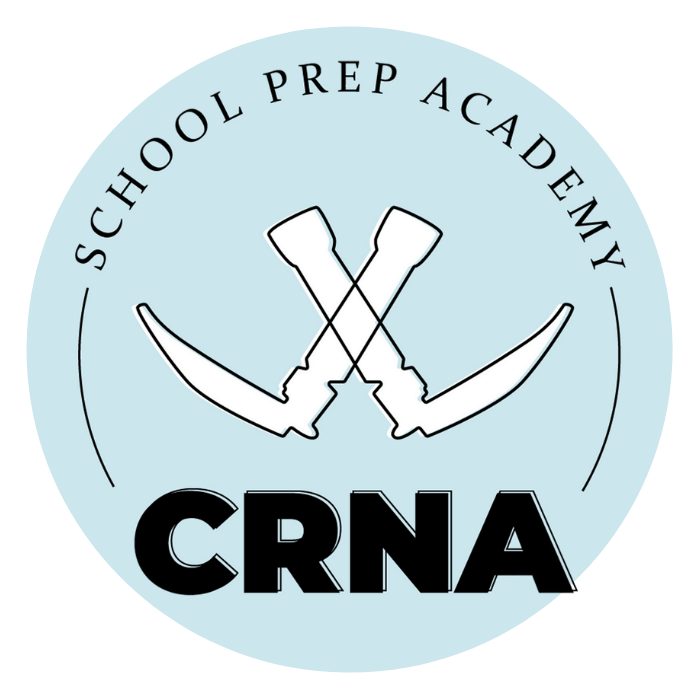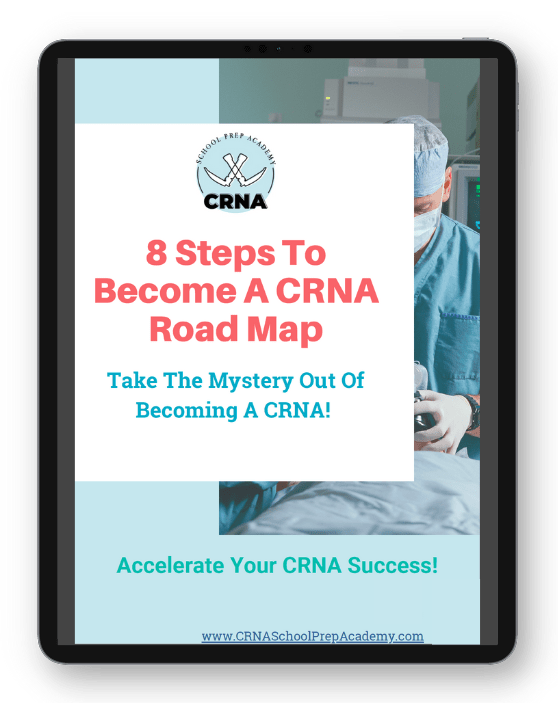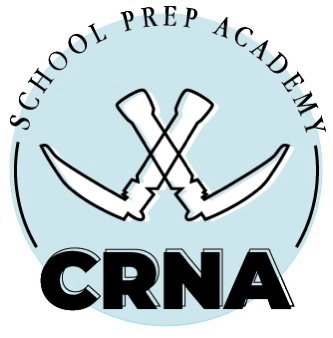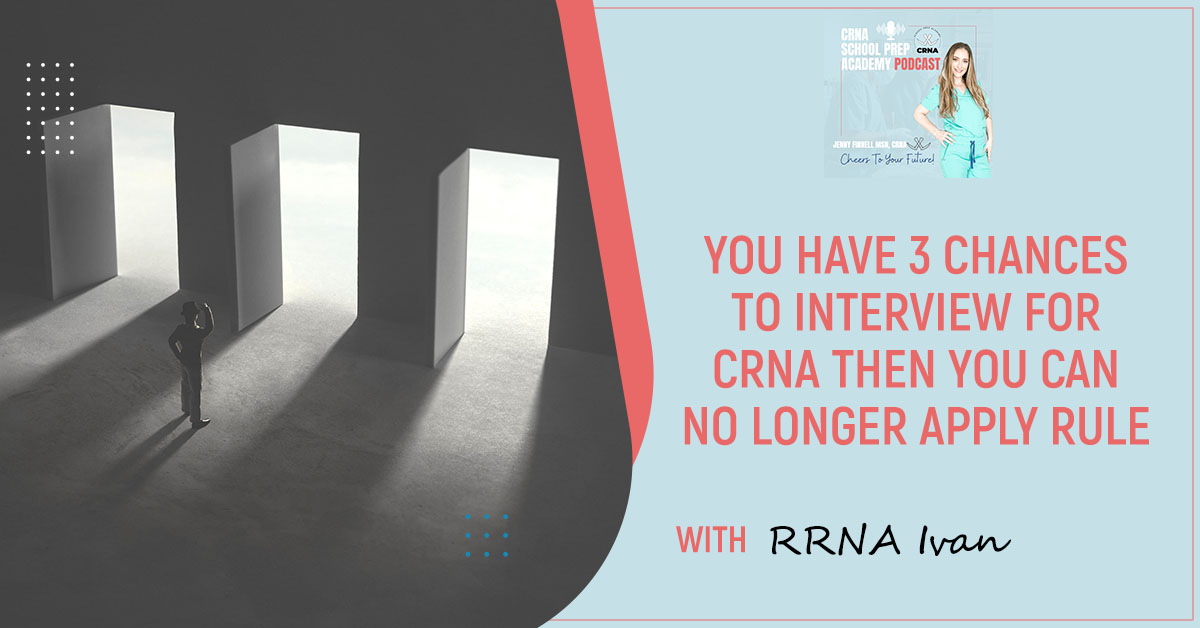
Did you know that you only have three chances to interview for a CRNA school before you can no longer apply there? This interview limit was news to Ivan, but that didn’t stop him from giving up. He applied for a CRNA school in 2019, but his application went missing. He later tried again in 2020, but the interview went horribly. He gave it another chance in 2021 and made it to the waitlist, but nothing further. And for his last interview the following year, he took all his learnings and experiences with him to finally get the school admission he longed desired.
Join Jenny Finnell as she talks to Ivan about his incredible journey of undergoing three interviews and why he never thought of giving up. Learn what resources he used to get through all these interviews. Always remember that perseverance is vital in this battle, and you should learn as you go.
Get access to planning tools, mock interviews, valuable CRNA Faculty guidance, and mapped-out courses that have been proven to accelerate your CRNA success! Become a member of CRNA School Prep Academy here! https://www.crnaschoolprepacademy.com/join
Book a mock interview, personal statement critique, resume review and more at https://www.TeachRN.com
Book a mock interview with Ivan or a mentor session: https://app.nursesteachnurses.com/ohivan123
Join the CSPA email list here! https://www.cspaedu.com/podcast-email
Send Jenny an email or make a podcast request!
Hello@CRNASchoolPrepAcademy.com
—
Watch the episode here
Listen to the podcast here
You Have 3 Chances To Interview For CRNA Then You Can No Longer Apply Rule With RRNA Ivan
We’re continuing this series that we started doing by bringing on CRNA School Prep Academy students and allowing them to share their success journey with you because there’s so much gold in these episodes. I hope you enjoy them as much as I do. We’re going to talk about “three strikes, and you’re out” as far as schools having an interview limit. Mind you, not all schools have an interview limit. Some are a one-and-done thing. We’re not going to mention the school’s name in this episode but this school has a “three times, and you’re done.” Ivan is here with us to share his journey. Welcome, Ivan, to the show.
How are you?
I‘m so excited to have you. Thank you so much for coming to the show. I spilled the beans a little bit about how we’re going to reference this and share your journey. You already shared with me a lot before we started. I would love to start from the very beginning and have you share your unique nursing background with our audience and why you decided to pursue CRNA.
First of all, thank you for having me. This is a dream. As I mentioned earlier, my upbringing to get to this point was a complete hot mess. I entered nursing as an STNA and then got into a nursing program in Northeast Ohio. It was hard for me because, in my undergrad, I had terrible grades. I felt like a typical high schooler. I’m like, “I got a 3.6 in high school. I was sleeping the whole time. College is going to be the same,” not realizing the actual academic devotion that I would need to commit to. I was taking 18 to 20 credit hours my first semester in pre-nursing and getting a bunch of Cs that do not look good. That did not benefit me on my way through.
Eventually, I did get into a nursing program. I was trying my hardest. I was going to give it my all but I was also still working. That posed a big challenge for me as well. I graduated from RN school with a 2.74. My undergrad prior to that was a 2.8. My GPA was never above 3, to begin with. I decided I wanted to be a CRNA when I was 16 or 17 years old. I met a CRNA when I was getting my wisdom teeth out. He was amazing. I had to get my wisdom teeth taken out twice. I got anesthesia from a CRNA and then the second time, I got anesthesia from an MDA. The CRNA was amazing.
He got rid of all my anxiety and explained everything that was going to happen. He was the best. I emphasized that I wanted to pursue this career but I was 17. At 18 years old, I got my wisdom teeth taken out. I thought I was going to pass out because this MDA was not working out. Moving forward, I graduated from RN school and took an assignment in Central Ohio. I became a new grad nurse in Central Ohio. I worked there for a year. I pursued to get my bachelor’s degree because I already knew the steps I needed to take to enter CRNA school or at least try to gain acceptance.
I knew that the biggest thing I needed to do was to get my BSN because I knew RN to MSNs existed at the time. This is prior to transitioning to a DNP program. I knew doing RN to MSN was not the way to go. I quickly got my Bachelor’s degree. I got my RN in May 2017. I immediately enrolled in a Bachelor’s program. I was able to start in August and I finished it in eight months. I got a 3.83. I was able to work on getting my CCRN as well. I started in a MICU. The environment was a little bit toxic. I did find trouble also entering the role of a nurse. I lacked a lot of maturity.
The biggest thing you need to get into CRNA school is a Bachelor of Science in Nursing. Click To TweetThis was emphasized prior to me even starting on the unit and going into the unit, nursing, and the ICU because I entered as a new grad in the ICU. I struggled a lot with being teachable and coachable. I expected something different. It wasn’t that I didn’t want to learn the job and be good. I expected the learning process to be a lot different. It’s amazing what asking a question teaches you. It required me to transition to a less toxic work environment that can emphasize teaching me.
I went to another hospital. It’s into a specialty, which played in my favor as opposed to against me because as a new grad, that’s a concern to some people. However, it went in my favor because then I went into a cardiothoracic ICU and a trauma surgical ICU. I was able to not only get the specialty experience but I was able to also get the general CICU experience as well as trauma and whatever comes through our door at a Level 1 trauma center. They had CRNAs all over the unit. I was like, “This is perfect. I would connect with someone and find someone to shadow.” They said, “Ask one of the CRNAs if you want to shadow. They were dropping a heart from the OR.” I’m like, “Why not?”
I did. They were super kind and cool about it. I shadowed for over 40 hours. I’m like, “This is what I want to do without a doubt.” I loved being in the OR. I was trying to get used to it and understand what to expect from a different perspective. I was like, “I’m going to do it.” I got my Bachelor’s degree and CCRN. I was like, “I’m going to start sending the applications in.” I sent my first one in 2019. That was the first time I applied. It got lost somehow. That was unfortunate but I applied again in 2020 after I had spoken with the program director. They did receive my application.
I want to mention a few things. I’d like to cap on some of the good things you said. One of the first things I want to point out that Ivan said is that he realized that he wasn’t as teachable or as coachable as he needed to be to start in the ICU as a new grad. I want to shout you out for that because that takes a lot of self-reflection. If you’re embarking on CRNA, a huge part of embarking on your CRNA journey is self-reflection and understanding where your potential weaknesses are. There’s nothing wrong with that but it‘s more of a problem if you don’t recognize it and you think the world’s against you or something.
He also sought out a different experience. Maybe he realized too that unit wasn’t necessarily conducive to learning. He sought out a new experience, which is also great. I also love the fact that you got in so many shadow hours early on. It fueled your passion to pursue CRNA. A lot of people miss out on this opportunity. I wish it weren’t the case but it is in many instances. You mentioned many good things. You also mentioned that your GPA was lower than desirable. You’re still able to overcome that.
I want to give you hope out there. You’re like, “I‘ll never get into CRNA school. My GPA is less than 3.0.” It can be done. We’re going to touch on that a little bit more because I want to unravel that a little bit more. Those are some things I wanted to point out too that you did. You mentioned that you applied in 2018 and that your application was somehow missed. All that being said, if you reflect on 2018, do you feel like you were ready at the time to apply? Do you have any idea of how that came to be? Was it an online portal? Was it a paper submission? Is there any reflection on that?
Ensuring Your CRNA School Application Is Complete
It was 2019. It was online. It was the first time I gathered a big application like this. It was my first time doing it. I asked around after I had submitted it because it’s not like applying to any other school. It’s not like applying for your RN or BSN. The BSN was extremely easy. That took five minutes. This is something that takes a lot of time cultivating, making sure your CV is good, making sure you put time and thought into whatever recommendation, gathering all your transcripts, and assessing what the school wants as a requirement. I don’t know if something was missing.
Applying for CRNA school is not like applying to any other school. It takes a lot of time and cultivating. Click To TweetWhat triggered my thought process in 2019 when people were getting decision letters was like, “I haven’t heard anything.” I inquired, “I’m checking the status of my application.” I didn’t even get an interview or anything like that. They said, “You’ve got your applications right here but X, Y, and Z were missing. It was never looked at.” I had sent emails saying, “I’m making sure I have everything.” I remember them saying, “Everything looks good. You will be in review.” Come October when everyone is like, “I got in. I got waitlisted,” it was like, “We didn’t even look at you because you were missing X, Y, and Z,” but I asked them.
That’s a good point though. You can’t be too thorough when reviewing what is required, especially if it‘s through NursingCAS. I can’t speak. Some programs have online portals. Sometimes that can be confusing. Especially when it comes to transcripts and things like that, it can be confusing and hard to understand whether it’s being submitted.
It does stink if you were told that everything looked good when it truly wasn’t but the only thing you can do is to make sure you are confirming they got the application. This is why it’s good not to wait until the last minute too because it gives you some time prior to the application deadline to follow up with the program. If you didn’t get confirmation that they received all your stuff, reach out, and make sure. Thank you for sharing that.
I also want to share; I had a student one time, he got into school eventually but he got put in a non-qualified pile for the first school he applied to. I say this a lot because it is such a unique thing. I want to make sure as many people hear it. He tested out of college algebra in high school, meaning he didn’t have to take college algebra in college because he tested out of it. The one CRNA school he was applying to, the only 1 out of 3 or 4, required a college algebra. He thought, “I tested out of it. I didn’t have to take it in college. Therefore, it was probably fine.” It was not fine.
Because of that one little nuance, his application got put in a not-qualified pile when he was more than qualified. He just didn’t have college algebra. He assumed that he was fine because he tested out of it. I wanted to point that out again. Make sure and triple and double-check all the requirements. If you have any questions, “Is that going to be okay?” reach out and ask. This is also why open houses are a great avenue to do stuff like this.
It never hurts to over-harass sometimes.
Making a connection with the school is huge but I would love for you to pick up where you left off as far as you applied in 2019. You’re missing stuff on your application. What did you do next?
I continued to work. I made sure I got my CCRN. I finished my Bachelor’s degree. I enrolled in my master’s program. I wanted to enroll in a master’s program for a couple of reasons. I wanted to remain academically engaged. My program did not require a Master’s degree by any means but my thing was I was concerned about being looked at as if I’ve been out of school for too long, “Is he going to be able to go back and do advanced-level grad classes and advanced didactic or anything of that sort?”
I also further reached out to the program director a little bit more and asked, “This is my concern about my GPA. I was not academically mature. I’m maturing more. I finished my Bachelor’s degree. I did great. I’m in this other program. What do you recommend I do about my science courses?” Hearing that your science GPA has to be greater than a 3.0 or even a 3.5 was fine.
She said, “If you can at least take one grad-level science course like advanced pathophysiology or something like that, and if you get an A in that, that at least shows us that you are able to do science courses at a graduate level and be successful.” I was like, “Bet.” I took advanced pathophysiology at a school in Central Ohio and got an A in it. That was a catalyst that helped me get in.

The following year is 2020. I took advanced patho in 2019. In 2019, I was improving myself and trying to boost my grades a little bit. I only took one class. My Master’s is in Nurse Leadership and Nurse Administration. It wasn’t anything science-related that could benefit me. Some people do take grad-level courses, hoping that the program will take them. That’s not always true.
I know that none of the courses for my Master’s degree will be taken in my anesthesia program. That’s not why I got it. I applied the following year and did get an interview this time. I was excited but I also did not know how to prepare but me having that advanced pathophysiology and making sure that my application got submitted this time got me my first interview. I was excited to do that. I was nervous.
Before you get into the juiciness of this, you point out a couple of great things. You didn’t get your application reviewed the first time but then you reached out. You expressed your concerns about your application and asked about your GPA, which was a concern. They gave you advice. You took a grad-level science course. A role or an MSN in leadership is not very heavily science-based. If you think that alone is going to help you, it’s not. You have to prove to them that you can take a high-level advanced pathophys or science course that’s going to show them that you can withstand the caliber that you’re getting ready to go into in their program, especially if you’re combating a low GPA.
I love the fact that you said all that, reached out and did your homework as far as how can you can improve. There’s nothing wrong with getting an MSN but you also mentioned that it wasn’t necessary. Equally, you mentioned that you knew these classes that you took for MSN and your graduate-level science weren’t going to transfer into your college career.
You have to research this. For example, in the college I went to, I took an advanced pathophysiology course that did transfer into my anesthesia program. That doesn’t apply to all schools across the board. The vast majority probably don’t because they’re a very specific anesthesia-based curriculum. Keep that in mind depending on where you apply. You didn’t feel like you knew how to prepare for your interview but you got one. How did that unfold for you?
To circle back to what you said quickly, my advanced pathophysiology course is not going to transfer over. I will have to take the nurse anesthesia version of that program, which I knew. She told me beforehand. It was specifically for science GPA purposes. Going to my interview, it was virtual. This was in 2020. COVID was in full swing. I was doing it virtually. When I was looking up ways to study, I was looking at some podcasts or some people on YouTube. YouTube was my friend at the time. I was trying to figure it out. A lot of people said, “Your CCRN review should be CCRN questions. Focus on that.”
The CRNA School Interviews
Me being a CT-CVICU nurse, I was like, “I don’t know what they’re going to ask me. Let me go through the whole CCRN review again.” I made it mostly clinical because I had no idea what they could possibly ask me. I also didn’t ask. Looking back at it, I would have loved to maybe ask other students, “What was your interview style? How would that have gone? What do I expect?” Even though virtual was new, I was one of the first catalysts to assess how that style would be but going into it, there were 15 to 20 minutes per room.
Before a CRNA interview, always ask other students how their own interview went so you can know what to expect. Click To TweetThere were two rooms. One was the professional behavior and emotional intelligence section. The other one was a clinical rapid bar. You would have a center of the room where they would talk to SRNAs and calm you down or hype you up a little bit, “You got this. You’re going to kill it. Don’t be nervous. Take your time.” You get pulled into a different room. You’re like, “It’s happening.” You see a one-program director and then a board of people. They would either say, “This is clinical. This is your emotional intelligence portion.”
For my first year, it was cringe. I did terribly. It was so funny because I was like, “I got it.” Two days later, I didn’t get it. I was like, “It’s fine,” but I didn’t know a lot of my clinical answers that I should have. It made me reflect, “This is how I need to study next time.” I deflected a lot of my emotional intelligence questions because I also didn’t necessarily know how to answer them. They need to be answered in a very specific way from what I have been taught. I’ve interviewed three times. I knew eventually how to gear my answers but the first time was terrible. I did not answer it appropriately. It was 100% cringe. I’m so glad I didn’t do it again.
You keep having a recurring theme. You have something happen and learn from it. You improvise, “How can I do better?” That’s what all this is about. It’s trying to reflect upon yourself and how you can improve. I even tell students, “Sometimes you want to do the first one as your practice. Pick a school that isn’t your number one and see how it goes because sometimes it’s about getting your feet wet and understanding what to expect.” Don’t feel bad if emotional intelligence-style questions are not your strong suit. That’s pretty normal for the vast majority of people if I’m being quite honest.
Few people can go into an interview. How many interviews would you say you had prior to anesthesia school that were that intense? Zero. That’s why I preach a lot about mock interviews. You did a mock interview. There are a lot of things that you can do to help yourself. That’s what it’s all about. Let’s get into it. Going from 2020 into 2021, that was your first real interview. You still didn’t get in your second interview but what changed from year one to year two?
From year one to year two, I knew what I had to do differently, “First of all, I need to study more than three days.” I studied five drugs. I studied the basic questionnaires that I see in my unit. Little did I know, they also want you to learn other drugs that you’re not necessarily used to. I had a lot of drugs that completely caught me off guard as a first-time interviewee. I made a whole drug sheet of twenty drugs, mechanisms of action, what receptors they worked on, and the whole shebang.
I made note cards and studied them. I remember the questions that I got asked the year prior and built upon that. They asked me some of them again the following year. I got again and answered correctly the two questions that I was asked the year prior. I was hoping for that. I did not fully expect that I was prepared as much as I can be. I did better in the emotional intelligence aspect where I felt that the way the questions needed to be geared, I answered them in that way.
However, there were a couple of questions that still caught me off guard. I asked for feedback. I ended up getting waitlisted in this program. I did ask aggressively multiple times because it takes a lot to get ahold of some people sometimes because they’re busy. I wanted feedback. It took a while for me to get the feedback but based on how some of my answers were, they said that it looked like I would get flustered in the OR. Looking back at it, I 100% could see that but it was important that I at least tried. They did feel the need to waitlist me but I improved because I reflected on my first interview, which was terrible. This one was not as terrible but I still needed to improve, and I feel like I did.

You studied for three days for the first one. How long did you study for your second interview?
A week and a half for the second one.
You improved dramatically. I love the fact that you stayed persistent and got the feedback. It’s not easy to do. It doesn’t feel good to get ghosted. I get it. Coming from the other side at this point in my life, it‘s so hard to respond to hundreds of people who are asking for feedback. Be patient and persistent. If you want the feedback, continue to follow up. Go to the open houses if you have to, see if they remember you, and get the feedback directly face–to–face. Where there’s a will, there’s a way.
Some schools will tell you, “We can’t provide that.“ The reason is not that they don’t want to help you but it’s because they have probably over 100 candidates who equally would like it. They’re also full-time faculty. A lot of them are still CRNAs working. They don’t have the time. They also equally want to see if you’re going to take initiative and try to do some self-reflection. This is all good.
Being waitlisted ended up not working out for you. That’s okay. The fact that you got waitlisted says to me that you did do a lot of work and that you’re leading up to that. They did take notice of that because you wouldn’t have made it to the waitlist. The waitlist isn’t acceptance. You either get off it or you don’t but it means that you’re qualified to be admitted to the program. That should be a sign that says, “I have to keep going because I’m so close.” You are so close. That’s not the time to quit. That’s the time to hit the gas and say, “I‘m going to go all in.” Let’s go into that. Talk about the third time. Did you know that the third time was the last time that you could interview at the school?
CRNA School Interview Limit
When I got my waitlist, that’s when it said, “This is your second interview. You are allowed up to three.” I was like, “I did not know that. The next time is the last time. I love it.” I did not love that, not at all.
That isn’t something that a lot of schools advertise on their website and things like that. That’s one of the nuances that I’ve found by talking to students and hearing from them and their experiences. I’m like, “I had no idea.“ Research that and ask at the open house. That would be a great question for an open house question, “Do you have a limit on how many times you can interview at your program?” Sometimes, even apply.
In the school that I even went to, I didn’t know this until afterward. You get two application attempts. That’s it, meaning if you apply twice and you aren’t asked to interview, don’t bother reapplying. They’re going to throw it in the trash. If you knew that, you would never want to wing your first application. Be cognizant of that type of thing. Let’s get into how you approached your third and luckily your last interview.
I was upset because I felt that I worked a lot harder compared to my first interview. I was sad because of something else that I did that I felt worked against me. I even tell students now. I picked the last day to interview for that second time. I was like, “They already have a pool of people they probably selected. I’m fighting for my last spot.” It took a month to get a decision letter. I was going nuts. I was trying not to let it eat me alive but it did.
I had a coworker. She had been admitted to almost every program in the state of Ohio. She told me about CRNA School Prep Academy. I’m like, “What is this?” She told me about the Facebook group ICU Dreaming. I followed it. It had a lot of great resources. I was playing around with it, and I found CRNA School Prep Academy. I’m like, “What is this?” She’s like, “That’s what I use to get into all my programs.” I’m like, “You mean to tell me I could have done this from day one and not have to go through all this?”
I had a mock interview with Haley Franck. It’s to die for. She was the best. She made me feel so good. She bridged a lot of knowledge gaps and aligned me in the right direction because I needed to work on my clinical abilities. I felt like I got my emotional intelligence where it needed to be but I was lacking in the clinical department. It’s not because I didn’t have a lot of experience.
I’ve been doing ECMO, Impellas, and balloon pumps. I’ve been taking these critical patients’ heart transplants in Cleveland. I’m wondering, “What am I missing?” I do travel nursing. I’m able to handle these sick patients across the country but why can’t I get this? She was a catalyst in getting me all the way together. I did other mock interviews with some other people in CSPA. Morgan Potts was amazing. He gave me amazing feedback and got me there.
I used the resources there for a solid year. I did a solid year of CSPA. From the time that I got waitlisted, which was around Halloween of 2021, I raided CRNA School Prep Academy’s website. There is a lot on there. I was so happy to find all of it. I did that. My last application year comes. This is in April 2022. I’m in Florida now. I’ve been at my current travel assignment for about a year. I’m like, “I’m going to do this. This is my last attempt.” I was starting to give up a little bit because maybe I’m not cut out for it but then I’m like, “That’s probably BS. I’m going to try my best.”
I went to conferences and a plethora of things. I submitted all that stuff but then I was thinking, “I need to do something a little different this time because I haven’t changed academically.” I’ve been working on this Master’s degree that I’ve been dragging out because I want to remain academically engaged up until admittance but I’m running out of classes to take. I finished.
I wanted to figure out what to do next. I was like, “I’m going to do one more certification. I want to prove that I am devoted to improving myself and educating myself constantly even as a traveler.” I did that, sent my application in, and got my last interview. There are a couple of things I did differently this time. The program director told me, “When you get another interview, email me. We will have a Zoom call together.” I’m like, “I love it.” We do a Zoom call. She’s asking me questions.

We have this one-on-one meeting. I already told her what I was doing. I told her I did Prep Academy and got my CSC but the biggest thing that she asked me was, “Where do you work?” When I told her I was a traveler now, she said, “Be advised. Travel nursing is a hot thing and a great way to prepare your finances for the commitment that you have to do for CRNA school and not work.”
I’ve been doing it since 2020. We find that travel nurses get the easier assignments and don’t take the super acute assignments that we would like our ICU nurses to do. I was able to quickly combat that by saying, “I’m a preceptor on my unit. I’m a charge nurse.” Eventually, they made me the hospital stat nurse because I do have a lot of clinical experience. I am a resource for that hospital and my unit.
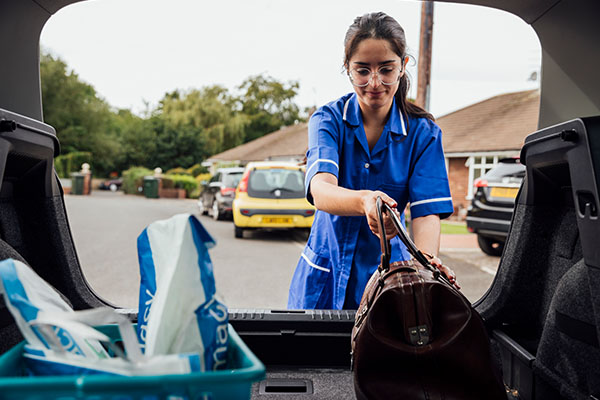
She says, “You need to mention that because a lot of travelers are having these regular MICU patients that don’t even need to be there.” If you’re taking hyperacute patients still, you need to mention that. My interview came, which was a lot shorter than my other two. I don’t know if they knew me and were over me at this point. They wanted to see what I had to say and get me out. It’s the same concept.
Acing The Third CRNA Interview
In the emotional intelligence aspect, I did well. In the clinical aspect, I did a lot better. I interviewed with Haley right beforehand. I listened to your podcast, which was a tremendous help. I studied for about three weeks. Your CSPA study guide is immaculate. The CV drug sheet you got is immaculate. I printed that, put it all over my walls, and interviewed on the very first day at the first time slot this time.
I was going to ask you about that. That’s great.
I even told the program director, “I feel a lot more prepared. While I am shaking in my little boots, I’m a lot more prepared now knowing that I did all this hard work.” I scheduled five mock interviews leading up to it all the way. I had one with Haley and 3 or 4 with some of the mentors on Nurses Teach Nurses. It was still on Prep Academy and then switched to Nurses Teach Nurses. I did five of them. It was well worth it. I needed constant experience.
I had taken my CSC prior. I had been studying since August. My interview was in September. I did that on purpose because if I did it super close to the interview, that forces me to study, not only for my tests but to emphasize my specialty and be prepared for that. It worked. I thankfully got in when Hurricane Ian happened. I was expecting it to be a denial letter. It wasn’t.
That’s so amazing. Congratulations. I can feel your energy still and how excited you are. I‘m so proud of you. You should be proud of yourself too. You had a long road and you stayed persistent. Here you are, entering the profession of anesthesia as a nurse. It’s amazing. I love the fact that you commented on the fact that you interviewed on the very first day in the first spot. That’s good for you because a mistake I’ll see a lot of people make is maybe they get the request to interview, and they’re like, “I‘m not ready.“ They book it on the last day possible.
The problem is that means you’re going to be fighting for fewer seats. By the time they get to you, they may already have an idea of who else they want. You’re not doing yourself any favors by giving yourself more time, which also brings me to the point that you said. You spent a solid year inside CSPA digging through every nook and cranny, which is amazing. You also equally said you did your CSC and then spent three weeks heavily studying.
In reality, if you look at all the things you did in CSPA plus your CSC, you spent an entire solid year, in my opinion, studying for this interview because you put in all this extra work. You did five mock interviews. That’s amazing. I wouldn’t say everyone out there needs five mock interviews but I would advise you probably similar to how you did it. You know yourself best and what you need. You have to listen to that voice and not be afraid of the investment. These students are here to help you.
We did move to Nurses Teach Nurses. In CRNA School Prep Academy, we weren’t able to accommodate how much of a need we had for mock interviews, transcript audits, essay audits, and all the things. We had an entire platform website custom–coded and built so I can allow more students, faculty, and CRNAs to help mentor one-on-one. It does take a good amount of effort from both parties to provide these services.
Haley Franck is amazing. She’s a friend and a colleague of mine. I worked with her for a while as well. They have your best interest in mind. They want to see you succeed. They remember what it was like. A lot of the mentors on NTN or Nurses Teach Nurses are current SRNAs or CRNAs. They were in your shoes. Remember that. I always tell people this because they’re like, “Who should I pick?“ Honestly, everyone, who’s there is there because they believe they can help you. They feel confident they can help you.
You’ve been through three interviews and made so many improvements. You can help someone else because you have so much insight. Someone who’s coming into this without any of that has to start where you started, which was rejection. You would say, “Let me save you some pain. I can give you some tips and pointers on how to improve that answer because this is the feedback I had to reflect upon right at one point.” I love that. I‘m so excited for you. I feel like we gave everyone a good story of your process but there are a few extra things I want to make sure we hit on. If you could go back in time and do anything different, what would that be?
If I can honestly do anything different, I would reach out a little bit more to other people who are on a similar academic journey to me. I also wish I was a little bit more self-aware because the thing is I walked into pre-nursing and nursing school thinking, “Whatever. It’s school.” It’s because I had that false pretense that high school was super easy. I went straight to college. I didn’t wait.
Have a little more self-awareness. Don't just walk into nursing school thinking that you can just do whatever. Click To TweetI wish I would have asked about a little bit more exactly what the studying commitment would be because I would have done better and tried to find techniques that would help me with memory retention and memory retrieval, which is a big thing when coming forward into anesthesia school. I’m even rushing up on more now to add to my current phase. I wish I would have improved on that so I could have focused and done a little bit better but honestly, it was a completely learn-as-you-go process.
I wish I would have found CSPA when it first was out of the womb because I probably wouldn’t have had to go all the way to number three. I would have stopped at 1 or 2 but you live and you learn. I have zero regrets because I have learned so much. I have grown in my profession as a registered nurse and as an ICU nurse. I have learned so much. I’ve matured academically and clinically. While I was gutted that I did not get into it the first and second time, I felt it wasn’t my turn yet.
There’s something that you’re missing that you don’t even know you’re missing. While you think you have it, it’s going to come to you later. You’re not going to know it. When you get it, you’re going to be like, “That’s what I was missing.” It came out of nowhere because I feel ready to do that. I’ve always said I felt ready. I knew that the transition would be like an on switch but there’s something very different about how I feel now compared to 2020 and 2021. I know that for the next few years, I’m in it. Let’s go.
I love how you wish you would have had more self-awareness. Speaking from a lot of 18–year–old people and 19–year–old people, it is something that comes with time. You don’t always know what you want to do when you “grow up.“ You don’t necessarily have a lot of passion or direction when you enter college. Unfortunately, it comes back to bite a lot of people but it’s one of those things where that experience alone makes you who you are. That is a beautiful person. I truly believe in the passion of struggle, which sounds a little weird but I truly believe those who can give back the most to others in life are the ones who didn’t have it so easy.
I also want to preface this with this. Even if you’re a 4.0 student, you can still have struggles. I‘m not prefacing, “This is not grade-related.” This can be on all kinds of personal levels. This is not just GPA–related. Whether you’re struggling to get into school because you’re struggling with emotional intelligence, that’s okay to be where you are in the present, reflect, and figure it out.
Not only did you have to figure out your GPA but you equally had issues on the emotional intelligence level. One of the first recognition pieces I can recall from your story was being coachable and teachable. You had to reflect upon that. I also love this wise quote, “When you speak, you are not learning. To learn, you have to listen.” Especially if you’re lacking confidence, speaking makes you feel confident but in reality, you’re hindering your ability to learn so you can grow to be a confident person versus the mere image of confidence.
You spoke about needing to understand how to memory retrieve. That comes with time as well and being cognizant of when I have to listen, pay attention, and self–reflect. How do these two topics relate to one another? How can I connect so that it makes sense? It takes time to realize that’s what you need to do versus more of a shallow approach, which unfortunately is taught in our education system in my opinion from a very young age, especially if you don’t have parents or mentors in your life who teach you otherwise.
That’s what happened to me. People saw me struggle. I didn’t know why. They didn’t know why. I was like, “I‘m dumb,” but it was more of the fact that I wasn’t doing the right technique for me and my brain. Many young adult learners are struggling with the same thing. It doesn’t mean you’re not capable. You are capable. You have to try different things and figure them out. You spent three years doing that. Congratulations. There’s one last question to wrap this up. You’ve already talked a lot about CSPA. Thank you so much for that. I appreciate your kind words. If you had to put a big–picture outlook on how you think CSPA helped you overall in your role for success, what would that be?
It helped bridge every single knowledge gap that I had and didn’t even know I had. It painted the picture of the whole struggle of what applying looks like, what interviewing looks like, and then even the anesthesia residency phase that you created, which I’m very excited to start in January 2023. It puts the whole perspective on what this process is leading up to school and then what specifics you can do to preface it and master how to walk in confidently.
Me being super aware of what I needed, I knew that I was able to refer to CSPA and find it. That happened every single time. It has a good wealth of resources, knowledge, and stuff. There are very common questions, not very specific to schools but it has enough knowledge of what is expected of the ICU nurse to know prior to the CRNA interview. When I got asked one time about something that threw me off guard, I had no idea what it was. I found it on CSPA, and I’m like, “If I would have had this a few years ago, I would have been fine.”
There are different conversations with SRNAs. Networking is such a huge part of being a CRNA and being an SRNA and getting into school. That’s another thing I did not know. You have to network, communicate, and meet people. CSPA creates an avenue to do that. That is so important. Learn from other people. The knowledge pool is so vast. The more people you connect with, the better. CSPA has it all 100%. I want to work for you.
I hope you do. I would love to keep you in mind for the future. Who knows? The door is wide open.
I do mock interviews and mentoring on Nurses Teach Nurses because of the thing you said about me being in an interview three different times and getting three different markers. I feel like that perspective helps. I do help to help. I did help one student. She did get in. She was my first interview. She got in the next day. I’m happy.
That’s amazing. Is it a mock interview that you do?
I do mock interviews and mentor sessions to help people improve in CVICU.
I love that. Thank you. That’s great of you to do. Thank you so much, Ivan, for joining us and sharing all your wonderful wisdom. Thank you for being a student of CSPA. Thank you for believing in us to get you where you need to be. I‘m proud of you. I love all your takeaways. It shows that you have grown. I‘m excited to welcome you to the community. I hope they get to work with you in clinical. We’re not going to disclose where that may be but I hope we can see each other in clinical sometime very soon. Take care.
Thank you so much. Have a wonderful time.
Important Links
- Ivan Ramos
- NursingCAS
- ICU Dreaming – Facebook group
- Haley Franck – Nurses Teach Nurses
Get access to planning tools, valuable CRNA Faculty guidance & mapped out courses that have been proven to accelerate your CRNA success! Become a member of CRNA School Prep Academy here:
https://www.crnaschoolprepacademy.com/join
Book a mock interview, personal statement critique, resume review and more at https://www.TeachRN.com
Join the CSPA email list: https://www.cspaedu.com/podcast-email
Send Jenny an email or make a podcast request!
